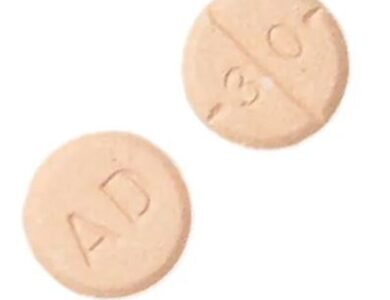Effective Ways to Cure Diarrhea: Home Remedies and Treatment
Diarrhea is a common digestive disorder that affects millions of people worldwide, often resulting in loose or watery stools, abdominal pain, and dehydration. While most cases are mild and resolve on their own within a few days, severe or persistent loose motions can lead to dehydration and other complications, requiring medical attention. Understanding how to effectively cure diarrhea involves knowing its causes, symptoms, and the appropriate treatments.
In this blog, we will explore the most effective ways to treat diarrhea, from home remedies to over-the-counter medications and when to seek medical help.
Causes of Diarrhea
Before diving into treatments, it’s important to understand what causes diarrhea. It can occur for several reasons, including:
- Infections: Viral, bacterial, or parasitic infections are among the most common causes of diarrhea. Contaminated food or water often leads to food poisoning, which can result in loose motions. Common culprits include Escherichia coli (E. coli), Salmonella, and norovirus.
- Food Intolerances: Some people may develop diarrhea after consuming certain foods, such as lactose in dairy products or gluten in individuals with celiac disease.
- Medications: Antibiotics can disrupt the normal balance of bacteria in the gut, leading to loose motions. Other medications, like chemotherapy drugs, may also cause this condition.
- Digestive Disorders: Conditions like irritable bowel syndrome (IBS), inflammatory bowel disease (IBD), and Crohn’s disease can cause chronic loose motions.
- Stress: Emotional stress and anxiety can negatively impact the digestive system, sometimes triggering diarrhea.
Symptoms of Diarrhea
The symptoms can vary based on the cause and severity of the condition. Common symptoms include:
- Frequent, loose, or watery stools
- Abdominal cramps and pain
- Bloating and gas
- Nausea or vomiting
- Urgency to have a bowel movement
- Dehydration (in severe cases)
When diarrhea lasts longer than a few days or is accompanied by signs of dehydration, high fever, or blood in the stool, it is essential to seek medical attention.
How to Effectively Cure Diarrhea
Diarrhea can often be treated at home, especially if it is mild and caused by a viral infection or food intolerance. Below are several methods to cure loose motions effectively.
1. Stay Hydrated
One of the most crucial steps in treating diarrhea is staying hydrated. Loose motions causes the body to lose a significant amount of fluids, leading to dehydration, which can be dangerous, especially in children and older adults. Here are some hydration tips:
- Drink water: While water is essential, it may not be enough to replace lost electrolytes (like sodium and potassium). However, drinking plenty of water remains critical to prevent dehydration.
- Oral rehydration solutions (ORS): ORS contains a specific mixture of salts, sugars, and water that helps to replace the lost electrolytes. These solutions can be purchased at pharmacies or made at home using salt, sugar, and water.
- Coconut water: Coconut water is another natural alternative for rehydration as it is rich in electrolytes like potassium.
- Avoid caffeinated and alcoholic beverages: These drinks can worsen dehydration and irritate the digestive system.
2. Adjust Your Diet
Diet plays a key role in curing diarrhea. Certain foods can help firm up your stool, while others should be avoided to prevent further irritation of the digestive tract.
- BRAT Diet: The BRAT diet, which stands for bananas, rice, applesauce, and toast, is gentle on the stomach and can help reduce loose motions. These foods are bland, low in fiber, and can help firm up the stool.
- Probiotic-rich foods: Probiotics, such as yogurt, kefir, and fermented foods, contain beneficial bacteria that can help restore the balance of good bacteria in the gut. This is particularly helpful if diarrhea is caused by antibiotics.
- Avoid fatty, spicy, and greasy foods: These foods can worsen loose motions by irritating the digestive system and should be avoided until your symptoms improve.
3. Over-the-Counter Medications
Over-the-counter medications such as nitazoxanide 500 mg and niclosamide 500 mg can be helpful in providing relief from diarrhea, especially when the symptoms are mild to moderate. However, these medications should not be used if loose motions is caused by an infection, as it could delay the body’s ability to eliminate harmful pathogens.
- Loperamide (Imodium): Loperamide works by slowing down the movement of the intestines, allowing for better absorption of water and forming firmer stools. It can be useful for treating short-term, non-infectious diarrhea.
- Bismuth subsalicylate (Pepto-Bismol): This medication can help reduce symptoms of loose motions and nausea, while also having antimicrobial effects that can reduce inflammation in the intestines.
4. Natural Remedies
There are also several natural remedies that can be effective in treating diarrhea:
- Ginger tea: Ginger is known for its anti-inflammatory properties and can help soothe the stomach, reducing diarrhea-related cramps and discomfort.
- Chamomile tea: Chamomile has been used for centuries to treat digestive issues, including loose motions, as it has calming and anti-inflammatory effects.
- Apple cider vinegar: Some people find relief by taking a tablespoon of apple cider vinegar mixed with water. It is believed to have antimicrobial properties that can help eliminate harmful bacteria from the gut.
- Fenugreek seeds: Fenugreek seeds are high in mucilage, which can help bulk up stool and reduce loose motions. Chewing on a small amount of fenugreek seeds or adding them to yogurt can help provide relief.
5. Rest and Recovery
Giving your body time to recover is essential when treating diarrhea. Resting allows your body to conserve energy and focus on fighting the cause of loose motions, whether it is an infection or another trigger. Avoid strenuous activities during this time and focus on eating small, light meals.
When to Seek Medical Attention
While most cases of diarrhea can be managed at home, there are situations where medical intervention is necessary:
- Severe dehydration: Signs of dehydration include dry mouth, dark urine, dizziness, and confusion. If you or someone else is experiencing these symptoms, it is crucial to seek medical attention immediately.
- Blood in the stool: Blood or mucus in the stool can be a sign of a more serious condition, such as an infection, IBD, or a bleeding ulcer.
- Diarrhea lasting more than two days: If loose motions persists for more than 48 hours without improvement, it is essential to consult a doctor to determine the underlying cause and receive appropriate treatment.
- High fever: A high fever along with loose motions can indicate a bacterial or parasitic infection that requires antibiotics or other medications.
Conclusion
Diarrhea is a common condition that most people experience at some point in their lives. Fortunately, there are many effective ways to cure diarrhea, ranging from staying hydrated and adjusting your diet to using over-the-counter medications and natural remedies. While mild cases of loose motions typically resolve on their own, it is essential to monitor your symptoms closely and seek medical attention if necessary, especially in cases of severe dehydration or prolonged diarrhea.



